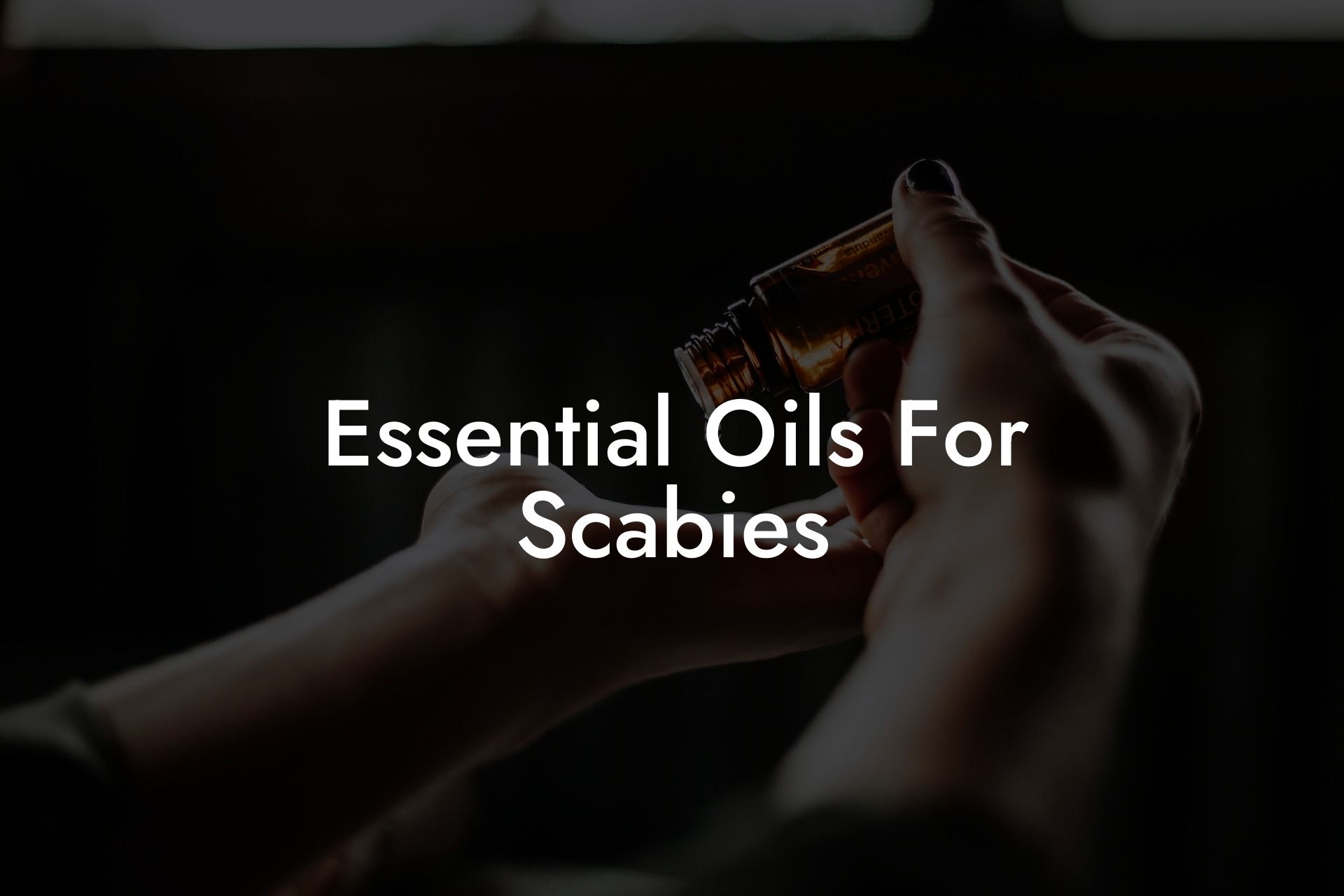Scabies is a common, yet highly uncomfortable skin condition that can make life miserable. With the onset of itching, redness, and rashes, many people look for effective natural remedies to ease their symptoms. Essential oils, with their myriad of therapeutic properties, can offer some relief in the fight against scabies. Discover the potential of essential oils and how they could play a role in the treatment of this irritating skin condition.
Table of Contents
What is Scabies?
Scabies is a contagious skin infection caused by the microscopic mite Sarcoptes scabiei. This tiny parasite burrows into the skin to lay eggs, causing intense itching, redness, and rashes. Scabies can affect anyone, regardless of age, gender, or hygiene. Close personal contact, such as hugging or sharing bedding, can easily transmit the mites from one person to another. Effective treatment is essential to prevent the spread of scabies within households and communities.
Why Essential Oils?
Essential oils are highly concentrated plant extracts that possess numerous potential health benefits. They have been used traditionally for centuries in various cultures for their medicinal and therapeutic properties. Many essential oils are known for their antiviral, antifungal, antibacterial, and anti-inflammatory properties, which can be helpful in treating skin conditions such as scabies.
Best Essential Oils for Scabies
Some essential oils have shown promise in alleviating symptoms of scabies and may accelerate the healing process. Below is a list of essential oils that can be considered for scabies treatment:
1. Tea Tree Oil
Tea tree oil is known for its effective antifungal, antibacterial, and antiviral properties. Its healing abilities have made it a popular choice for treating various skin infections, including scabies. Tea tree oil is thought to kill scabies mites and may also provide relief from itching and inflammation.
2. Lavender Oil
Lavender oil is prized for its soothing and calming effects on the mind and body. Additionally, it has antifungal, antibacterial, and anti-inflammatory properties that can help alleviate itching, redness, and inflammation associated with scabies.
3. Clove Oil
Clove oil possesses powerful antimicrobial, antiviral, and anti-inflammatory properties. Studies have shown that clove oil can be an effective treatment against the scabies mite, making it a valuable addition to any scabies-relief regimen.
4. Neem Oil
Neem oil has a long history of use in Ayurvedic medicine. It offers potent antimicrobial and anti-inflammatory properties, which can be beneficial in treating scabies. Neem oil is believed to disrupt the life cycle of the scabies mite, preventing it from reproducing and speeding up the healing process.
How to Use Essential Oils for Scabies
Essential oils should be diluted before applying to the skin. Mix a few drops of your chosen essential oil with a carrier oil, such as coconut oil or almond oil, and gently massage it onto the affected areas. Remember to patch test any new essential oil on a small area of the skin before applying it to a larger area, to ensure that it does not cause any irritation.
Essential Oils For Scabies Example:
Jane, a 30-year-old woman, began to suffer from intense itching and noticed small red bumps appearing on her skin. After consulting with a doctor, she was diagnosed with scabies. Alongside her prescribed treatments, Jane decided to explore natural remedies and came across the potential benefits of essential oils. After conducting a patch test, she mixed five drops of tea tree oil and five drops of lavender oil with a tablespoon of coconut oil. Jane applied this mixture to the affected areas twice a day, finding significant relief from itching and watching her red bumps begin to subside.
With their powerful therapeutic properties, essential oils offer a natural and complementary approach to easing the symptoms of scabies. To explore more about the benefits of essential oils and their applications, feel free to peruse our Oshu Oils guide and discover our range of Artisan Essential Earth Oils. If you found this article helpful or intriguing, please don’t hesitate to share it with friends and loved ones who may also benefit from learning about the potential applications of essential oils.





















